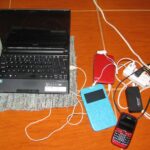Jesus once stood on the Mount of Olives and wept as he looked over Jerusalem. “If you had only recognized this day, and everything that was good for you!” he cried. His words were not resignation but grief that demanded vigilance. His heart ached for a people numbed by occupation and injustice. He mourned for a city that had lost sight of what was sacred.
We Filipinos know this numbing well. Our sense of kapwa, that deep awareness that another person’s suffering is also our own, has been dulled by years of betrayal. Corruption in the Philippines has worn us down until fatigue feels normal. We shake our heads, mutter wala na talagang magbabago, and move on.
Yet Jesus does not permit resignation. His righteous anger, when he drove out the merchants who had turned the temple into a den of thieves, shows us another way. Faith demands confrontation, not apathy.
Corruption in the Philippines: A Scandal That Mirrors Us
Consider the latest scandal that has flooded our headlines and our streets. Since 2022, the government has allocated about ₱545 billion for flood-control projects. These funds were meant to protect lives and livelihoods.
However, investigations revealed that many of these projects were ghost infrastructures, unfinished, substandard, or siphoned off by layers of kickbacks. Testimonies before the Senate identified at least 17 legislators. Along with DPWH officials and favored contractors, they were accused of pocketing as much as 25% in kickbacks.
A small group of firms cornered most of the contracts. Meanwhile, ordinary Filipinos trudged through waist-deep water. Homes washed away. Children missed school. The national treasury bled, but worse, our kapwa drowned.
Filipino Fatigue and the Corrosion of Conscience
Here we see the distortion of a word central to our culture: kasalanan. Its root, sala, simply means “misaligned.” When corruption is treated as sala—a misstep or a small bend in the rules, it cheapens sin. Accountability dissolves in that reduction.
Even worse, apathy becomes its own corruption. It is the refusal to be moved by injustice. It poses as tired realism but is, in truth, callousness. When everything is described as only “misaligned,” nothing feels serious enough to confront. Ganito na talaga becomes the lullaby we sing to ourselves.
Fatigue is understandable, but it is dangerous. Each time outrage fades into resignation, corruption hardens into habit. What once shocked us becomes background noise, like floodwaters rising every monsoon.
Righteous Anger: Jesus’ Tears and Confrontation with Injustice
Jesus’ lament over Jerusalem breaks through resignation. He did not look away. He named what was broken. When the temple was defiled, he confronted it. His was not apathy but love expressed as anger.
We often sanitize Jesus into meekness. Yet we forget the tables he flipped. His righteous anger was not cruelty. It was a defense of what was holy. For him, tolerating corruption in sacred spaces was impossible.
And what could be more sacred today than the lives of ordinary Filipinos? Hardworking men and women continue to pay the price for the greed of the powerful.
From Filipino Fatigue to Filipino Hope
The Filipino heart is known for tolerance. We endure with humor, find joy in hardship, and forgive quickly. Yet tolerance has a shadow side. It can numb us to injustice.
When combined with a shallow sense of kasalanan, as though corruption were only sala, our tolerance turns into complicity. Yes, fatigue is real. After decades of recycled scandals, we are tired of demanding reform. We are weary of watching the well-connected thrive.
Still, Jesus’ example reminds us: fatigue is not an excuse for indifference. For those who claim faith, watchfulness is not optional. Vigilance may feel small against billions lost to corruption, but it keeps our conscience alive. Prayer may feel powerless, but history shows that whispered prayers and stubborn persistence often spark movements for change.
Choosing Vigilance Over Resignation
The flood-control scandal is not just another entry in a long list of anomalies. It is a mirror held up to our national conscience. Will we admit that the water rising in our streets is not only from typhoons but also from moral collapse? Will we excuse ourselves with fatigue while children wade through mud to reach school?
Jesus wept because he loved. His lament was born of hope that peace and justice were still possible. For us Filipinos, to recover our kapwa is to refuse apathy. It is to grieve corruption as our own wound. It is to feel righteous anger when systems cheat the vulnerable. It is to stay awake, even when exhaustion tempts us to sleep.
Fatigue is human. But faith calls us to more. It calls us to vigilance, to prayer, and to action. If even Jesus refused resignation, then so must we. For the faithful, not being watchful is never an option.
[1] 41-44 When the city came into view, he wept over it. “If you had only recognized this day, and everything that was good for you! But now it’s too late. In the days ahead your enemies are going to bring up their heavy artillery and surround you, pressing in from every side. They’ll smash you and your babies on the pavement. Not one stone will be left intact. All this because you didn’t recognize and welcome God’s personal visit.”





